Marbella’s model for Intelligent Destinations
 Building on historic cultural and economic links with Spain, EUROAL 2013 International Travel Market for Latin America and Europe saw José Luis Córdoba Leiva, Director of Andalucía Lab Tourist Innovation Centre in Marbella, present a conference on “How to become smart destinations and not die in the attempt”. Held at Torremolinos Palacio de Congresos (6-8 June), eleven themes were highlighted:
Building on historic cultural and economic links with Spain, EUROAL 2013 International Travel Market for Latin America and Europe saw José Luis Córdoba Leiva, Director of Andalucía Lab Tourist Innovation Centre in Marbella, present a conference on “How to become smart destinations and not die in the attempt”. Held at Torremolinos Palacio de Congresos (6-8 June), eleven themes were highlighted:
1. The transformation of destinations explained how travellers are increasingly looking for holidays with different added value elements and stressed the importance of tour operators investing in customised adventures and experiences for travellers willing to spend significant amounts of money enjoying extended breaks in stimulating destinations.
2. Changes in people’s behaviours show they increasingly look to stay connected and access information via mobile phones and tablets. Offering enriched, unique encounters satisfies travellers’ interest in documenting and photographing personal experiences ‘on the go’ to share on blogs and social networks, enabling tourism companies to inform clients of where to go, what to buy, special offers, etc. Research by Airbnb travel accommodation showed reservations across their network increased from 1 million in 2008 to 4 million in 2013 – tourists voting with their feet for short term stays in unique rental spaces in neighbourhoods around the world.
3. User-driven content such as Instagram photo sharing demonstrate people’s trust in information provided by their peers rather than from traditional sources such as Tourist Information Centres and Town Halls.
4. Analysis of web behaviour shows the separation between browsing on computer versus mobile devices – indicating people’s desire for information on the go as they look, consider and buy. As José Luis explained, “Tourism is one of the most information-intensive industries” and tourist guides are optimizing content to fit mobile and tablet display and keypad functions.
5. Googling “what to see in London” produces 1.85 billion search results. This ‘Big Data’ is an example of travellers’ information demands – leading to opportunities for providers to upload quality content promoting their products and services.
6. The geographic make-up of the world is changing. As individuals in emerging countries become more affluent and destinations become more accessible, we’re seeing a shift in traveller choices – for example, the Chinese have become the highest spending non-European visitors to France, more so than Russians.
7. Now more than ever it’s essential to know your market – find out as much as possible about clients’ interests and demands.
8. The luxury travel sector is increasing. On 3 June 2013, management consultants Pricewaterhouse Coopers recorded an 8.8% rise in high-end hotel reservations. An example of Chinese travellers paying $82,000 dollars for a round the world trip shows where the wealth is and the sector’s future potential.
9. According to PhoCusWright travel market research, nearly 1 in 3 leisure agencies is hiring with the American Society of Travel Agents reporting a 57% increase in independent agents’ business over 2011 showing the sector’s demand side bouyancy.
10. Managing a hotel’s online reputation is important in a market where purchasing decisions are influenced by peer-to-peer holiday review sites such as TripAdvisor.
11. As web browsing shifts from computers to mobile devices, Apps will become an increasingly important information access point for travellers with the added advantage that online connectivity isn’t needed once the App is downloaded.
José Luis reassured tour operators that adapting to technology developments isn’t technical or difficult, especially with the guidance of agencies such as Andalucía Lab.
Conference attended and translated by Chris Dove, Pro Write and Edit, Málaga, www.prowriteandedit.com
Disclaimer: The views, opinions and positions expressed within this guest article are those of the author Chris Dove alone and do not represent those of the Marbella Marbella website. The accuracy, completeness and validity of any statements made within this article are not guaranteed. We accept no liability for any errors, omissions or representations. The copyright of this content belongs to Chris Dove and any liability with regards to infringement of intellectual property rights remains with the author.



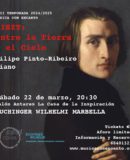
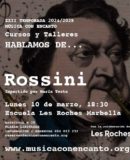
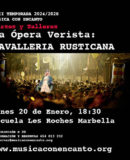
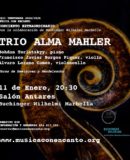
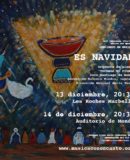
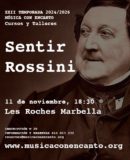


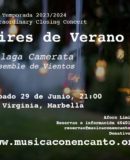
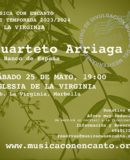
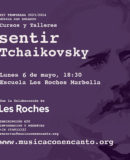
The opinions expressed by individual commentators and contributors do not necessarily constitute this website's position on the particular topic.